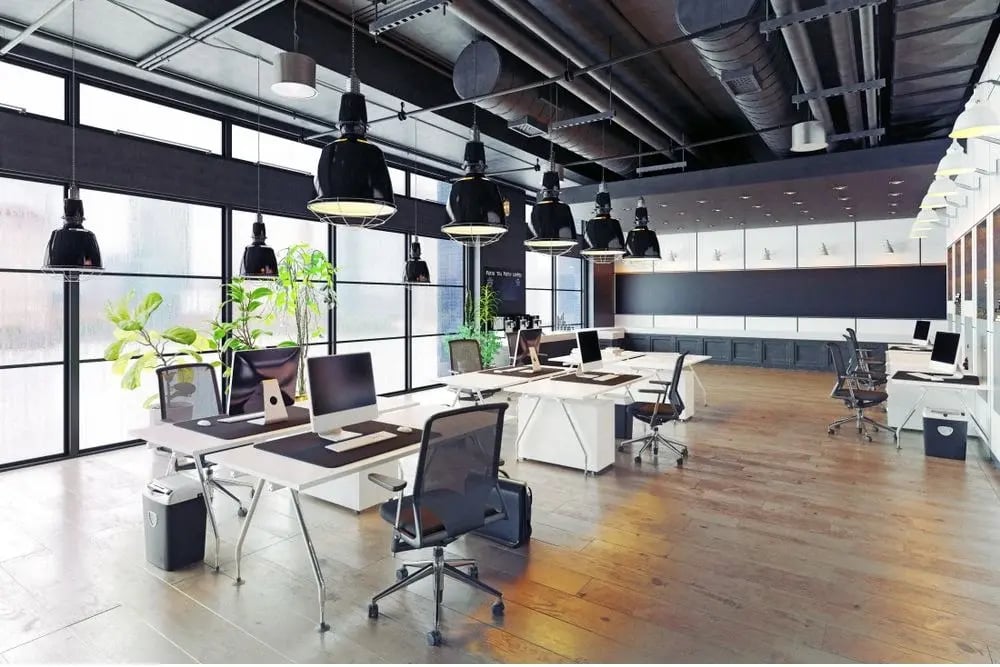What Kind Of Facility Is Well Suited For A Production Company

Are you a production company owner or manager looking for better ways to maximize your facility's potential and increase overall efficiency? You’ve come to the right place. In this blog post, we'll discuss what kind of facility is best suited for a production company, including the features and amenities necessary for ensuring optimal productivity.
Understanding how to appropriately set up a production-friendly workspace can make all the difference in how organized and efficient projects are able to be managed – especially when it comes to tight deadline workflows. Weighing out options early on will also help you decide which layout and setup meet your organization's unique needs as well as your budget requirements. Read on for details about making an informed decision on what kind of facility works best for creating successful productions!
Buildable or Expandable Locations
When looking for a location to build or expand your business, it's crucial to consider whether it's buildable or expandable. A buildable location means that there's a vacant lot or space that's suitable for construction. So, for instance, if you opt for PEMB construction in Minnesota, this would require you to find an empty lot that can be leveled and developed according to the design. On the other hand, an expandable location implies that there's an existing structure or property that you could potentially add onto to accommodate your business's growth.
It's important to assess the infrastructure and utilities of the location, zoning regulations, and environmental impact. These factors can impact whether it's practical and feasible to build or expand at a particular location.
Warehouses
Warehouses are vital to the smooth functioning of any logistics system. They serve as temporary storage spaces for goods in transit, waiting to be transported to their final destination. These facilities are designed to accommodate a wide range of products, from perishable items to large machinery.
Warehouses are typically located near transportation hubs, including airports, rail yards, and seaports, to make the transfer of goods as efficient as possible. They are also equipped with a range of technologies and tools, including forklifts, pallet jacks, and conveyor belts, that streamline the movement of products within the facility. Because of their importance to the supply chain, warehouses are constantly evolving to meet the demands of the industry.
Industrial Lofts
Industrial lofts have become a popular choice for urban living in recent years. These spaces were once used for manufacturing and industrial purposes, but have been repurposed into unique and modern living spaces. The utilitarian nature of these lofts makes them a great canvas for creative home decor and design.
Exposed brick walls, high ceilings, and large windows create a raw and edgy aesthetic that appeals to many. Not only do industrial lofts provide ample living space, but they also offer a sense of community, with shared spaces like rooftop decks and courtyards. Whether you're a young professional or a family, industrial lofts offer a dynamic living experience that's hard to find anywhere else.
Flexible Office Spaces
Flexible office spaces have become increasingly popular in recent years, particularly for freelancers, start-ups, and small businesses. These spaces offer a versatile and cost-effective solution compared to traditional office leases, enabling users to tailor their usage to their individual requirements, whether that’s hot desking, private offices, or meeting rooms. The flexibility of these spaces can provide greater agility and responsiveness for businesses to scale up or down, as well as being able to offer a more dynamic and collaborative working environment.
From a utilitarian perspective, flexible office spaces can help reduce overhead costs, provide access to professional facilities and services, such as fast internet and printing, and allow for greater work-life balance with the option of shorter commutes.
Existing Production Studios
Production studios are known for creating content that captivates audiences from all walks of life. They provide a space for creativity to flow, allowing ideas to come to life in the form of films, TV shows, and more. These studios employ a range of skilled individuals, including writers, directors, producers, and actors, all working in harmony to achieve a common goal. Moreover, production studios make use of cutting-edge technology to create the best possible output, ensuring that their content is of the highest quality. In today's fast-paced world, production studios play a crucial role in shaping popular culture, and they will continue to do so for years to come.
After exploring available facilities, it is clear that there are plenty of options to choose from. Whether you’re looking for a buildable or expandable location, warehouse or industrial loft, or even a self-contained studio facility with soundstage and control rooms, the production company can be tailored to your need and budget.
Ultimately, the choice depends on the creativity of the team and which option best suits their individual vision. With proper planning in advance and flexibility to accommodate shifting production needs - regardless of whether it is an existing facility, a creative space conversion “build-out” process, or a full-on construction project - any kind of facility can be well suited for any production company.

Ravindra Ambegaonkar
Ravindra, the Marketing Manager at NY Engineers, holds an MBA from Staffordshire University and has helped us grow as a leading MEP engineering firm in the USA
Join 15,000+ Fellow Architects and Contractors
Get expert engineering tips straight to your inbox. Subscribe to the NY Engineers Blog below.


